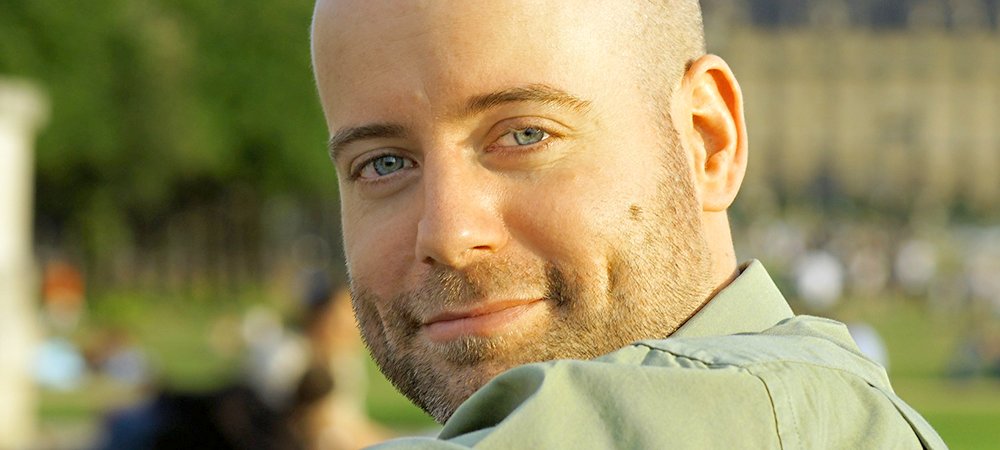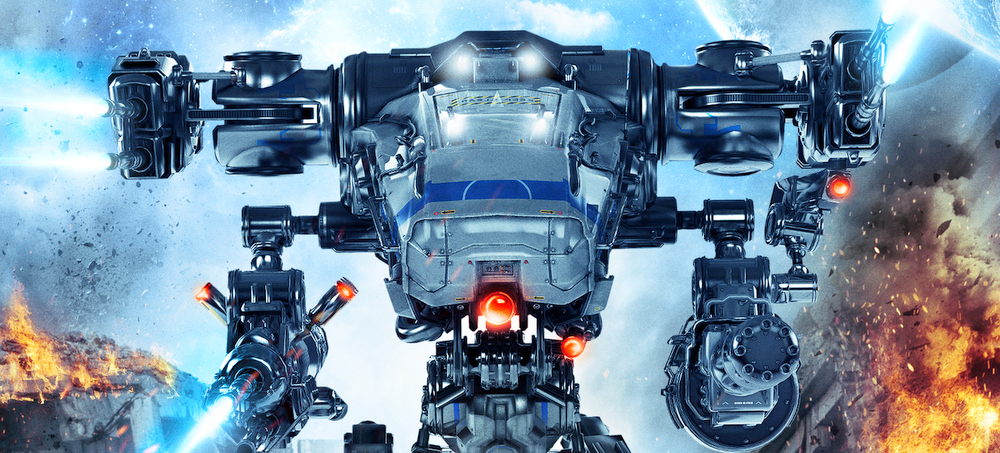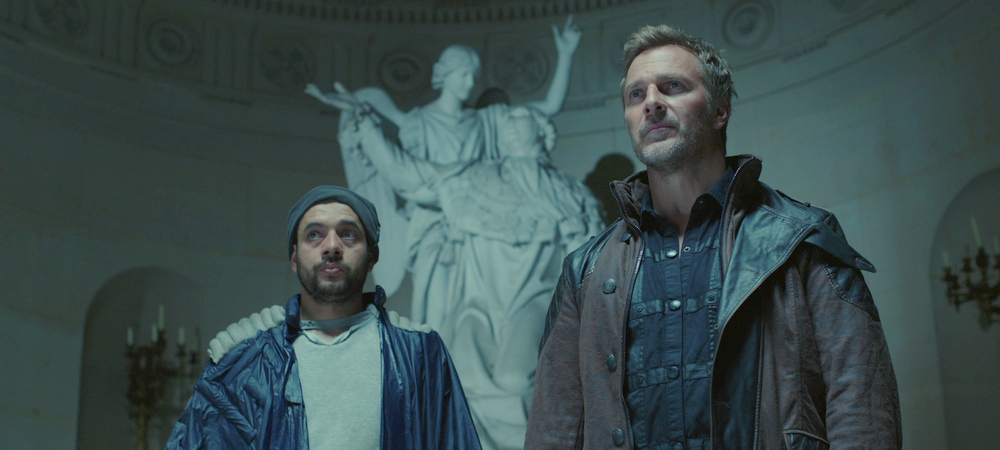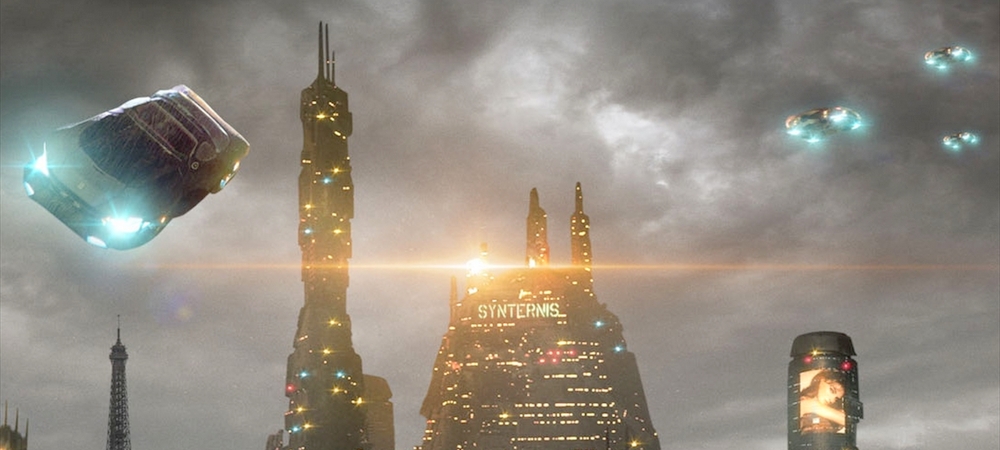
Film composer, producer and moviemaker Guy-Roger Duvert talks about his feature directorial debut, 2047 : Virtual Revolution (out now from Wild Eye Releasing). A mesh of Blade Runner and Brainscan, the fabulously-conceived sci-fi thriller puts an agent against some rogues looking to bring down a virtual reality superhighway. Duvert talked us through his process….
indieactivity: When did your filmmaking career kick off?
Guy-Roger: I’d say it is kicking off right now. Making Virtual Revolution is opening many doors to me, as I’m getting contacted by producers for different projects. I know I need to be careful not to wait too long for my second feature film, though. I need to benefit from the dynamic created by VR when it still lasts.
indieactivity: What was it about movies that had you fixed on building a career around making them?
Guy-Roger: I’m just a huge movie watcher. Even if I would include also TV shows. Right now I’m working on feature films, but the idea of working on TV shows excites me also a lot. Movies have the power to bring the viewer into worlds that he wouldn’t have imagined himself. They make you laugh, make you cry. Their impact is huge. I first loved watching movies, before loving making them. That being said, I also like other supports. I wrote two novels, a comic book. What I like above all is telling stories. But making films is probably for now the most powerful tool I can access in order to create worlds.

indieactivity: Most cite “Star Wars” as the film that spurred them to a career in film. What film was it for you?
Guy-Roger: I first started in the industry as a film music composer (which I still do). As a composer, a few films strongly impacted me: Last of the Mohicans, Conan the Barbarian, and above all Gladiator. As a director, it’s harder to give a title. I’d prefer to give directors who strongly inspired me: Christopher Nolan, Ridley Scott, Peter Jackson, Gore Verbinski…
indieactivity: What was the first thing you shot?
Guy-Roger: A short film called ‘Costa Roja’. An intimate thriller, in a cell, between 3 men. Visually, it was solid, which opened some doors for me as it allowed me to shoot some corporate movies after. But it also had some strong weaknesses, that I made sure to avoid in my following projects.
indieactivity: And how do you think you’ve improved as a filmmaker since then?
Guy-Roger: Well, the acting was very unequal, in that first short. I think I made all the mistakes possible in that matter: bad casting, bad dialogues, and sometimes bad directing. That’s what I really worked on after. First lesson: when you have a doubt about an actor, there’s no doubt to have, don’t take him! Second lesson: make sure to cast actors who look the role even before saying a word. There is only one first impression. Third lesson: better writing when it comes to dialogues. A script isn’t a novel. It needs to be more alive. And finally, the camera should serve the acting, the performance, and not the other way around. As you can see, I had made many mistakes then. Now I feel much more comfortable as a director. The fact that Virtual Revolution received many acting awards proves hopefully that I could learn from my mistakes.

indieactivity: Is there a sequence in the latest movie that you’re truly proud of, one you can genuinely step back from and say ‘wow, that looks great’!?
Guy-Roger: More than one, actually. When it comes to acting, I love the scenes between Nash (lead actor Mike Dopud), Morel (Maximilien Poullein) and Stilson (Jochen Hägele). Their performances add humour, suspense, tension. I really love the characters we managed to create.
Visually, I would choose two scenes: first, when Nash connects in Leonard’s seat. I wanted at the same time to create a surprise, to make a sexy scene, but a very glamorous one, not a vulgar one. We had to feel like in a perfume advert. And I love the result. I also really love the interior gunfight, after the robot scene. It’s almost completely a one unique long shot. In order to make the gunfight more realistic, I actually took inspiration from video games, by following constantly one of the characters. It allows to feel perfectly which character is where, which is something lacking in many movie gunfights. I’m really proud of that scene.
indieactivity: How did you get the cast? All auditions?
Guy-Roger: I had contacted Mike Dopud directly through social medias, years before the shooting, after noticing him in Stargate Universe. I’d been wanting to work with him for a while. I knew he was a lead role material, and I wanted to use that. I got in touch with Jane Badler through a common friend. As for the rest, we did it the very traditional way: auditions. Some roles were obvious, some took more time.

indieactivity: Did they have much time to get to know each other before the shoot began?
Guy-Roger: Not that much. Mike arrived in France a few days before shooting. So, that still left us several days of rehearsals, but still, I wouldn’t call it much time. The alchemy worked right away, though. All were very well prepared, and I had already worked the roles a lot during the auditions.
indieactivity: Where did you shoot the movie? Do you believe the city is as much a star of the movie as the human players?
Guy-Roger: Maybe not as much, but the city is definitely one of the characters of the film, indeed. We shot the whole movie in Paris, France. And we used almost exclusively real locations, which is one of the sources of the production value we created for the film. It also gives the film a pretty unique identity, compared to most sci fi cities in movies, usually based in the US or in Asia.
indieactivity: What do you hope audiences get from the movie?
Guy-Roger: First, I hope they’ll get entertained. That is the first purpose of the film. Now, if the film can also make them question themselves on this topic, the impact of virtual reality upon us, which is something that the ending tends to provoke, that’s a great bonus. The film doesn’t tell the viewer what to think, which is something often done usually. It gives the elements for a reflection but after, the viewer is free in his interpretation. During the Q&A we had during the festival season and the theatrical release in France, it was great to see that half of the viewers saw the Necromancers as just terrorists, while the other half was seeing them as liberators with a just cause. That means we succeeded in staying subtle, with realistic characters. Beside the visual world we created, that’s probably our best victory.
Richard Green Documentary, ‘I Know Catherine, The Log Lady’: Premiere in NYC, LA May 9th
Lynchian Doc I Know Catherine, The Log Lady Makes Hollywood Premiere 4/17, Rollout to Follow
In Camera by Naqqash Khlalid Launch on VOD April 29
Naqqash Khlalid’s Directs Nabhan Rizwan. In Camera stars an EE BAFTA Rising Star Award Nominee.
2025 Philip K. Dick Sci-Fi Film Festival Award Winners Announced
Vanessa Ly’s Memories of the Future Awarded Best PKD Feature
Dreaming of You by Jack McCafferty Debuts VOD & DVD for April Release
Freestyle Acquires “Dreaming of You” for April 15th Release
Hello Stranger by Paul Raschid set for London Games Festival & BIFFF
The film Is set for an April 10th Premiere at The Genesis Cinema in London (LGF) and BIFFF
Daydreamers Official Trailer by Timothy Linh Bui: Released by Dark Star Pictures
Daydreamers Vietnamese Vampire Thriller – May 2nd release









